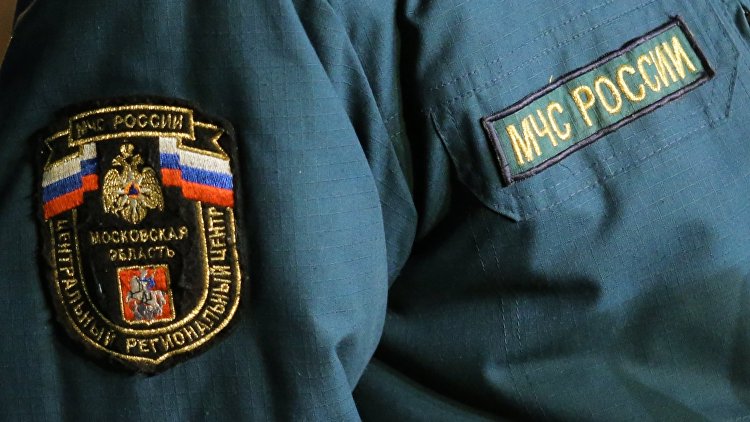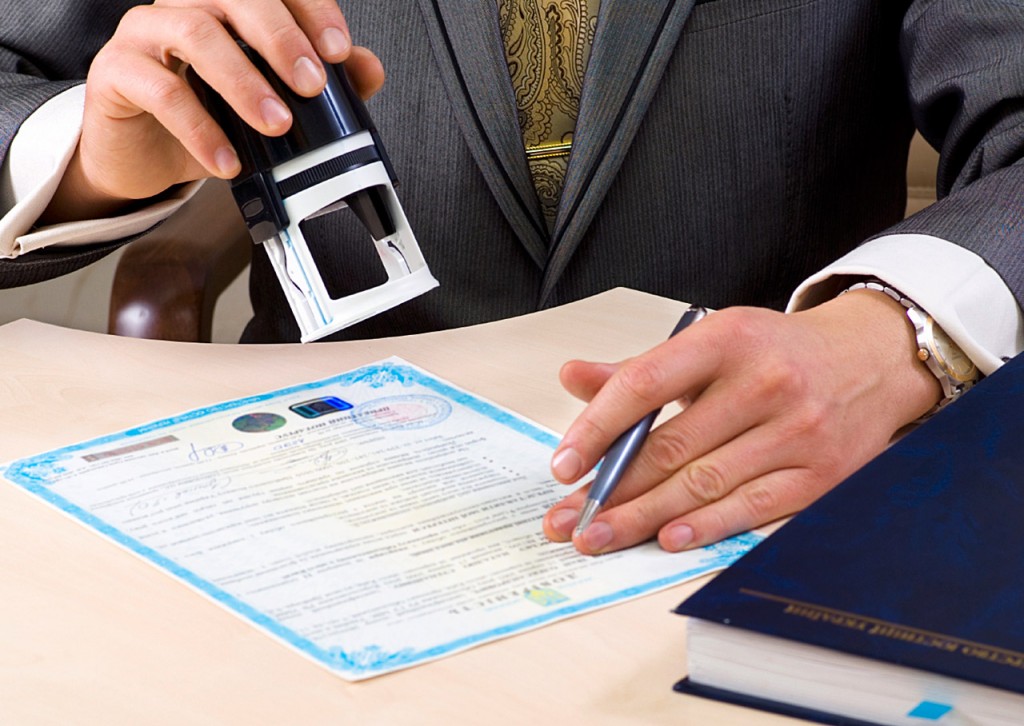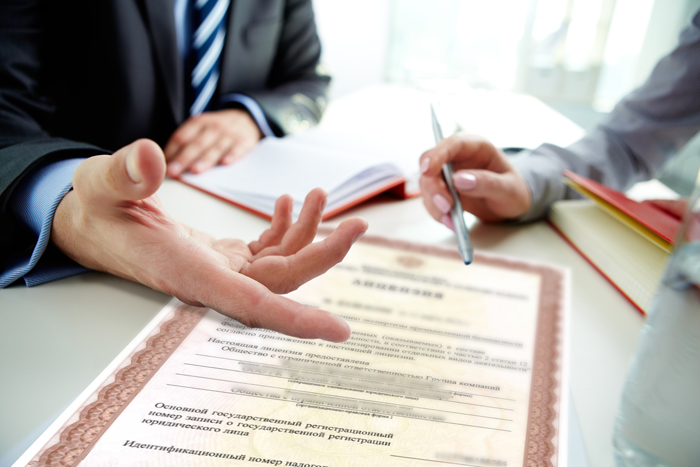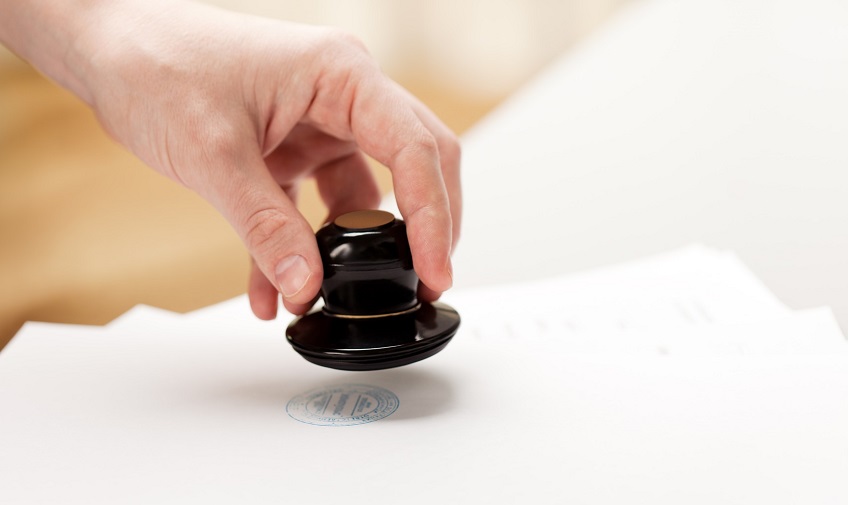This government body generates publicly available resources that contain information from the registers, and, in addition, provisions on specific activities and technical regulations that establish mandatory requirements for the licensing procedure. In this article, we will consider the activities as well as the powers of the licensing authority.

Key Points
A license is a permit to carry out certain activities subject to the mandatory compliance with the necessary requirements and conditions. This document is issued by the licensing authority in favor of the legal entity, as well as to the individual entrepreneur. The regulation of relations that occurs in connection with the licensing procedure for certain types of activities occurs in accordance with federal law No. 158.
In what case can licensing authorities suspend a license? If the licensee is brought to administrative responsibility for the fact that he does not comply with the prescribed deadline and does not eliminate a gross violation of license requirements.
Who doesn’t apply to?
This law does not apply in any way to foreign trade and customs activities. In addition, it is not related to activities related to environmental protection and the use of natural resources. Also, this law does not control the relations that arise in connection with the application of the results of intellectual activity. Licensing bodies include executive authorities of the constituent entities of Russia, which act on the basis of this Federal Law (Ministry of Internal Affairs of Russia, EMERCOM of Russia, Rosprom, FSB of Russia, FMS of Russia, Ministry of Finance of Russia, Rospotrebnadzor).
Licensed types include activities the implementation of which may result in damage to the rights, and, in addition, to the legitimate interests of citizens, their morality and health, as well as the country's defense along with the security of the state.
Requirements and conditions of the licensing authority
Obligatory requirements for all licensed business options are compliance with Russian legislation along with environmental, sanitary and epidemiological, hygienic, fire safety rules and regulations.

Types of licensing bodies we reviewed. In addition, special knowledge is required from the license applicant, therefore, they are subject to strict qualification requirements in a particular field of activity.
Buildings, as well as structures along with technological equipment must also meet all the necessary conditions and meet special requirements.
Credentials
The licensing authority exercises a number of the following powers:
- Produces a license.
- It is engaged in re-issuing documentation confirming the availability of a license.
- Suspends the functioning of licenses. This is done in situations of administrative suspension of one or another activity of licensees due to violation of existing requirements and conditions.
- Terminates the license in cases provided for by federal law.
- Maintains a register of licenses.
- Information is provided to interested persons from the registers and other information about the licensing procedure.
- Exercising control over compliance with the conditions and requirements when engaging in licensed activities.
- Appeal to the court regarding the revocation of a license.
The powers of the licensing authorities are established by the provisions on specific options for activity. But there are some limitations.
The authority of the licensing authorities does not include cancellation of a license in case of violation of industrial safety requirements.
License control
Licensing control is carried out in order to verify the reliability of information about applicants, based on the information contained in the submitted documents. Thus, the ability of applicants to fulfill licensing requirements is determined. And besides, information on compliance with licensing conditions in the implementation of a particular type of activity is checked.

Licensing authorities verify this by comparing information with information stored in a single state register of legal entities, and, in addition, individual entrepreneurs. The licensing authority receives the relevant information in the manner established by the Government of Russia.
In particular, when the licensing authorities verify that the applicant is able to fulfill the necessary requirements, the provision of Federal Law No. 294, which is called “On the Protection of Rights in relation to Legal Entities in the Framework of Municipal Control and State Supervision,” applies.
The licensing authority makes a decision within a period not exceeding forty-five days from the date of receipt of the application for a license and the documents attached to it.
Activities for which a license is required
The federal law provides 105 types of activities for which a license is required. Some of them are:
- Production of aviation equipment.
- Activities related to the development and production of safeguards for confidential information.
- Development of military equipment.
- Arms trade.
- Production of pyrotechnics.
- Geodetic activity.
- Pharmaceutical activity.
- Production and production of medical equipment.
- The cultivation of plants that contain drugs for their further use for scientific purposes.
- Passenger transportation by sea.
- Passenger transportation by air.
- Passenger transportation by rail.
- Audit activity.
- Medical activity.
- Space activity.
- Educational activity.

Licensing provisions: works and services
The provisions on licensing certain types of activities establish a list of works and services for the following options:
- Activities related to the conduct and organization of gambling, including the use of special equipment in casinos.
- The implementation of space activities.
- Occupation by medical activity.
- Designing buildings or structures, excluding seasonal structures, and, in addition, auxiliary purposes.
- Engineering survey for the construction of buildings, with the exception of seasonal or auxiliary buildings.
- Operation of explosive and fire hazardous objects.
- Conducting educational activities on pedagogical programs.
Suspension and cancellation
Licensing authorities may suspend the license in case of attracting licensees for violation of the requirements for administrative responsibility within the framework established by the Code of Administrative Offenses.
In cases where a judge makes a decision to suspend activities for violation of requirements, the authorized body suspends the license within 24 hours from the moment such an opinion comes into force.
Licensee Responsibilities
The licensee shall notify the authorized body in writing of the elimination of a violation of the conditions that entailed the official suspension of its activities.Licensees can send this notice electronically.

The license may be renewed by the authorized body from the day following the expiration of the suspension of activity. The validity period of licenses at the time of their suspension is not extended.
In the event that within the time specified by the judge the violations of the conditions that led to the suspension of the licensee’s activities are not eliminated, the authorized body agrees to appeal to the court with a request to cancel the license. As a rule, the license is canceled by a court decision, based on the consideration of the application from the authorized body.
When does the license expire?
The license is usually terminated from the moment of entry in the unified register of the closure of the legal entity as a result of the reorganization or from the day the relevant document expires or the authorized body decides to suspend it ahead of schedule. The license is suspended on the basis of an application submitted to the authorized body to terminate the implementation of a particular type of activity. In addition, the license expires on the day the court decision to annul the document comes into force.
License usage
A license is issued separately for each type of activity. It can be used exclusively by those legal entities, and, in addition, by individual entrepreneurs to whom it was issued.

A federal license can be used throughout Russia. The regional license is used within the issuing entity. On the territory of other subjects of the country it can be used only with the notification of the licensing authority.
The validity of licenses cannot be less than three years. It cannot be extended at the request of licensees. Federal laws and regulations on licensing certain types of activities provide for a perpetual license.
Licensed activities are determined by the type of product manufactured, and, in addition, by the stages of its cycle, whether designing or subsequent processing along with transportation, storage, disposal and so on. For the issuance of licenses levy a fee in accordance with the tax code of the country.
Documents for obtaining a license
The following documents are required to be submitted to the licensing authorities:
- Application drawn up according to the established model.
- Copies of the constituent documentation of the organization, which must be certified by a notary.
- All required documents, which are established by the regulation on the licensing procedure for a certain type of activity.
- A list of all attached documents.
The application form is established by the regulation on the licensing of certain types of activities. What documents are not entitled to require a licensing authority? This is a copy of the documentation testifying to the absence of any tax debt from legal entities for the previous period.
License registries
A register of licenses is maintained by type of activity. Licensing is carried out in electronic form. The registry is maintained on electronic media in accordance with a single organizational, methodological and software-technical principle, which ensures compatibility along with the interaction of licenses with other information systems and telecommunication networks. So, the following information should be indicated in the registries:

- License registration information.
- The basis along with the term of suspension or renewal of licenses.
- Information on the basis and date of revocation of licenses.
- Information on the basis and terms for applying the simplified licensing procedure.
- Information about the addresses of the licensed type of activity.
- Information on the issuance of documentation confirming the availability of licenses.
- The basis along with the date of termination of the licenses.
- Other information that is determined by the provisions on licensing certain types of activities.
The licensing authority makes entries in the register of licenses, as a rule, within three days from the moment it announces the decision to provide the relevant document.
The information contained in the register of licenses is public. It is primarily available to interested parties. Such information is subject to mandatory posting on the official Internet portal of the licensing authority. The exception is cases in which, in the framework of maintaining official, commercial or state secrets, such access should be limited on the basis of Russian legislation.
The information contained in the register of licenses, in the form of any extracts about certain licensees, is provided to individuals and legal entities for a fee. The amount of payment for the provision of this information is usually one hundred rubles. Payment for the provision of information contained in the register of licenses shall be credited to the appropriate budget. Information from the register is provided free of charge to state authorities and local self-government. The deadline for providing any information from the register of licenses should not exceed three days from the date of receipt of the relevant application.
We examined the basic powers of licensing authorities.
